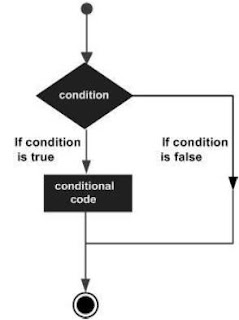Arduino - Control Statements
Decision making structures require that the programmer specify one or more conditions to be evaluated or tested by the program. It should be along with a statement or statements to be executed if the condition is determined to be true, and optionally, other statements to be executed if the condition is determined to be false. Read More: Arduino Info
Following is the general form of a typical decision making structure found in most of the programming languages −

Control Statements are elements in Source Code that control the flow of program execution. They are −
| S.NO. | Control Statement & Description |
|---|---|
| 1 |
If statement
It takes an expression in parenthesis and a statement or block of statements. If the expression is true then the statement or block of statements gets executed otherwise these statements are skipped.
|
| 2 |
If …else statement
An if statement can be followed by an optional else statement, which executes when the expression is false.
|
| 3 |
If…else if …else statement
The if statement can be followed by an optional else if...else statement, which is very useful to test various conditions using single if...else if statement.
|
| 4 |
switch case statement
Similar to the if statements, switch...case controls the flow of programs by allowing the programmers to specify different codes that should be executed in various conditions.
|
| 5 |
Conditional Operator ? :
The conditional operator ? : is the only ternary operator in C.
|

Comments
Post a Comment